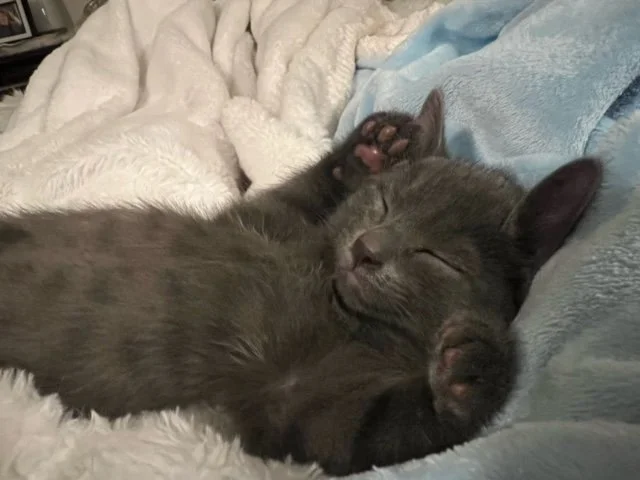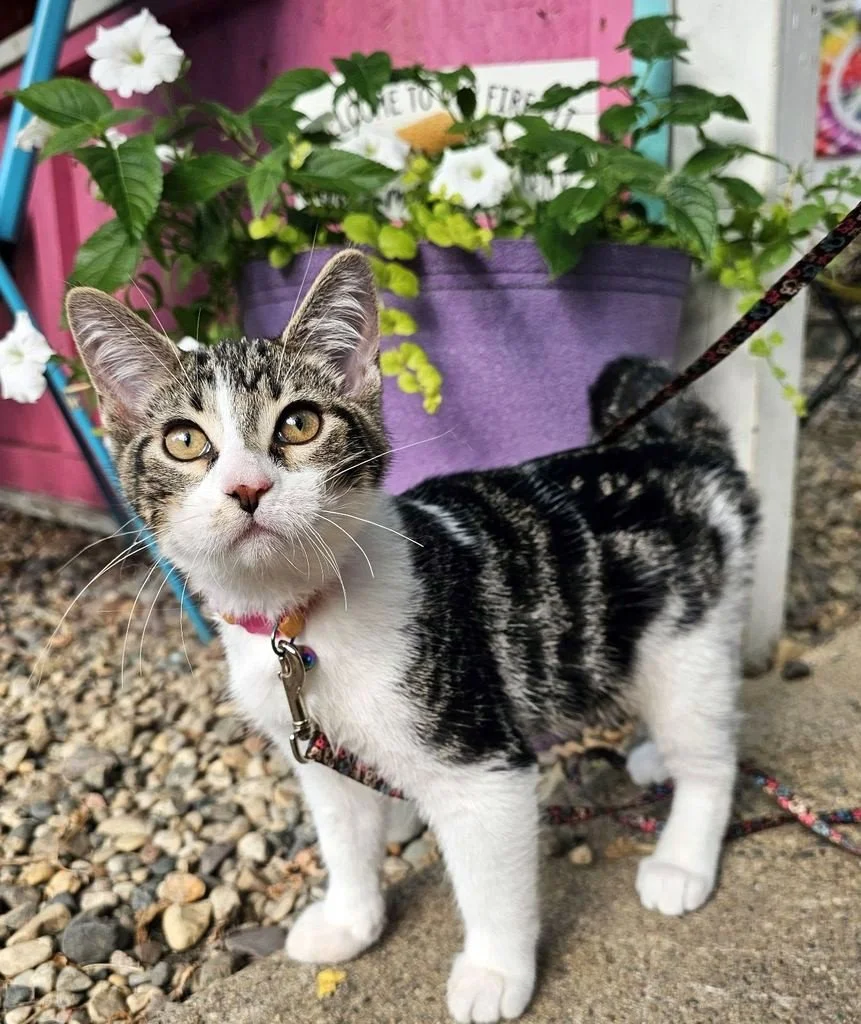Feline Distemper On The Rise in Regina
/Cadence lost her short battle with panleukopenia.
This winter has been a rough one for Regina Cat Rescue (RCR), as we’ve encountered several cases of feline panleukopenia, also known as distemper, for the first time in years. Distemper is a highly contagious and life-threatening viral disease in cats. While scary, distemper is largely preventable thanks to routine and effective vaccines. Unfortunately, RCR has recently seen a spike in cases of distemper in new rescues, resulting in the loss of lives, compromised foster homes, and expensive vet bills. This virus is currently occurring in Regina and surrounding area, so RCR is advising caution to people in contact with stray cats.
Prevention
Yearly vaccination is the most effective way to prevent feline distemper. All kittens and cats that come into RCR’s care are vaccinated for FRCP, which includes feline rhinotracheitis, calici, and panleukopenia. Limiting a cat’s exposure to potential sources of the virus can also reduce their risk of contracting the disease. This is another reason to keep kittens and cats indoors or in an enclosed “catio” when outdoors.
Sweet Selena succumbed to distemper
Who’s at risk?
Feline distemper is highly contagious, and cats of any age can become infected. Most at risk are young kittens, sick cats and un-vaccinated cats. The majority of cats in RCR care who have succumbed to feline distemper this year have been kittens under the age of four months. Once feline distemper has been introduced into a home, other pets are at risk as the virus can live for months on a hard surface. This is why RCR will not place any un-vaccinated cats in a foster home that has come into contact with distemper for a minimum one-year period.
Graham (foreground) crossed the rainbow bridge after a battle with distemper
Symptoms
Signs of feline distemper are similar to those of other illnesses, like feline immunodeficiency virus (FIV) and feline leukemia virus (FLV). Symptoms of distemper include depression, loss of appetite, high fever, lethargy, vomiting, severe diarrhea, nasal discharge and dehydration. Because these symptoms are sudden and severe, distemper is often fatal in kittens. Diagnosis can only be done by a vet and immediate support treatment, like fluids and antibiotics, is required at the onset to guarantee a chance at recovery.
Be safe
If you take in a stray cat, it’s best to keep it quarantined before taking it to a vet – especially if you have other pets. Wash your hands and change your clothes before handling your own pets if you are caring for a rescued stray. Ensure the cat is examined by a veterinarian and vaccinated as soon as possible.
As always, please complete RCR’s intake request form if you are requesting assistance from RCR with a rescue.
http://www.reginacatrescue.com/stray-or-feral-catkitten-request-for-help/













